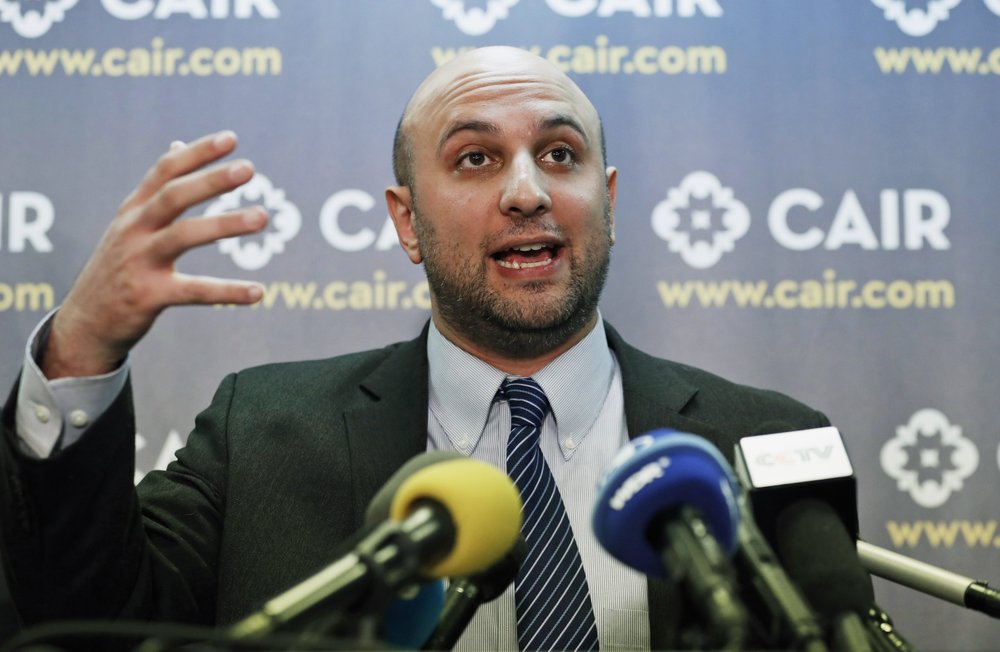National
Feds share watchlist with 1,400 private groups

FALLS CHURCH, Va. (AP) — The federal government has acknowledged that it shares its terrorist watchlist with more than 1,400 private entities, including hospitals and universities, prompting concerns from civil libertarians that those mistakenly placed on the list could face a wide variety of hassles in their daily lives.
The government’s admission that it shares the list so broadly comes after years of insistence that the list is generally not shared with the private sector.
Gadeir Abbas, a lawyer with the Council on American-Islamic Relations, which has filed a constitutional challenge to the government’s use of the watchlist, called the government’s admission shocking.
“We’ve always suspected there was private-sector dissemination of the terror watchlist, but we had no idea the breadth of the dissemination would be so large,” Abbas said.
The watchlist is supposed to include only those who are known or suspected terrorists but contains hundreds of thousands of names. The government’s no-fly list is culled from a small subset of the watchlist.
Critics say that the watchlist is wildly overbroad and mismanaged, and that large numbers of people wrongly included on the list suffer routine difficulties and indignities because of their inclusion.
The government’s admission comes in a class-action lawsuit filed in federal court in Alexandria by Muslims who say they regularly experience difficulties in travel, financial transactions and interactions with law enforcement because they have been wrongly added to the list. The Associated Press is the first to report on the disclosure after reviewing the case documents.
Abbas said now that the government has disclosed how many private entities receive access to the Terrorist Screening Database, the official name of the watchlist, it now needs to explain exactly which private entities are receiving it and what they’re doing with it. He’s asked a judge to require the government to be more specific. A hearing is scheduled for Friday.
“Are universities taking TSDB status into account in making admission or disciplinary decisions? Are Inova Alexandria Hospital’s building security personnel screening visitors against the TSDB and denying entry to listees? Is Motorola screening its software engineers who work on cellular infrastructure equipment against the TSDB and firing listees? Plaintiffs have no idea,” Abbas and co-counsels Lena Masri and Carolyn Homer wrote in a brief submitted Friday.
In depositions and in court hearings, government officials had denied until very recently that the watchlist compiled by the FBI’s Terrorist Screening Center is shared with private entities. At a pretrial hearing in September, government lawyer Dena Roth told U.S. District Judge Anthony Trenga that the Terrorist Screening Center “does not work with private partners, and that watchlist status itself … is considered law enforcement sensitive information and is not shared with the public.”
Despite that assurance, the judge ordered the government to be more specific about how it disseminates the watchlist. Trenga said the plaintiffs are entitled to the information to try to prove their case that inclusion on the list causes them to suffer “real world consequences.”
In response to Trenga’s order, TSC Deputy Director of Operations Timothy Groh filed a written statement earlier this month acknowledging that 1,441 private entities have received permission to access the watchlist. Groh says those private entities must be in some way connected to the criminal justice system. He cited police forces at private universities, hospital security staff and private correctional facilities as examples.
It is not clear what restrictions are placed on how private institutions use the list.
The FBI did not respond to emails and phone calls seeking comment.
Hugh Handeyside, attorney with the ACLU’s National Security project, said the government’s disclosure is “noteworthy in that it corroborates what we’ve long suspected, but it still leaves unanswered several important questions.” He said more information is needed to know how private entities use the information.
“The likelihood of stigma or adverse consequences is increased” every time the government shares the list with a private organization, a foreign government or any other agency, he said.
The exact number on the list is kept secret by the government, but it acknowledged in an earlier lawsuit that it adds hundreds of thousands of names to the list every year. It also emphasized that names are routinely removed from the list.
In some quarters, the government has been criticized for failing to widely disseminate the list to private agencies who might need to know about suspected terrorists. A 2007 report from a government watchdog criticized the government for just that.
Abbas, though, said the problem with disseminating the list is that the list itself is so faulty and littered with so many innocent names that, for all practical matters, the list is merely a compilation of “innocent Muslims who have never committed a crime.”
“It is a fool’s errand,” Abbas said of the watchlist’s purported goal. “They are trying to predict, among the innocent, which people will be terrorists. That is an impossibility.”
